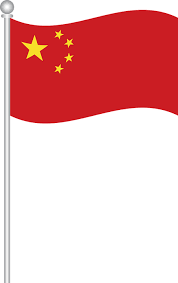 The China hard landing has yet to impact world markets. The economy is holding its own. Credit expansion continues, but the pace of it has slowed. And housing, of course, remains the Chinese savings account, which sets up a whole host of problems for when those same investors have increasingly better (and easier) options to invest abroad.
The China hard landing has yet to impact world markets. The economy is holding its own. Credit expansion continues, but the pace of it has slowed. And housing, of course, remains the Chinese savings account, which sets up a whole host of problems for when those same investors have increasingly better (and easier) options to invest abroad.
All of this macro risk weighs on the two big China funds, the iShares FTSE China (FXI 24,02 -0,11 -0,46%) and the Deutsche X-Trackers CSI 300 (ASHR 24,53 -0,17 -0,69%) A-Shares ETFs. Both are underperforming the MSCI Emerging Markets over the last 12 months, with FXI — the most popular trade into China — up only 2.97% in the last 10 years in annualized terms.
What is so worrisome about China?
The true state of the credit environment may be further clouding the view, writes CBB International’s Leland R. Miller & Derek Scissors in the Wall Street Journal on April 16. “The conventional wisdom is that improvement compared to a year ago and commodities-induced inflation has already compelled the People’s Bank of China to start tightening. Not so on the street. While interbank interest rates may have risen a bit, China Beige Book data show the cost of capital for companies fell, whether provided by banks, shadow financial firms, or the bond market. Interest rates at shadow banks fell to their lowest level in three years,” they say.
So that means Chinese companies did not really overcome tighter first-quarter credit and still grew. Instead, they capitalized on four year low interest rates, refinancing their debts at lower costs, and helping them out on the margin.
It seems the market is very savvy to this. Investors are not seeing big earnings growth, and where they are seeing it they are being asked to pay huge premiums for it. Internet juggernaut Tencent is up 4,447% in 10 years. Yes, four thousand-plus percent. Year-to-date it’s up 21.35% in Hong Kong dollar terms. To own it, you’re paying around 47 times earnings, nearly twice the price of Google (Google Inc. 148,74 -0,94 -0,63%) and a bit more expensive than Facebook (Facebook, Inc. 303,17 -13,39 -4,23%).
Chinese search engine Baidu (BIDU 110,53 -2,80 -2,47%) trades at around 46 times as well. The stock is up 1,746.8% in 10 years in U.S. dollar terms. Yes, one thousand, seven hundred….
China still has some cheap assets out there. Lenovo Group is underperforming the local Hang Seng, up 5.5% this year and trades at just 11 times earnings. The stock is up 75% in 10 years in Hong Kong dollars, beating the Hang Seng Index.
Real estate giants are also getting beat up. Billionaire Li Ka-Shing’s construction firm CK Hutchinson stock is down 38.9% in the last 10 years and is up 6.5% in Hong Kong dollars YTD, but still an underperformer. This is why CK Hutchinson trades at just 10 times earnings.
China banks are even worse. One of the so-called Big Four — China Construction Bank — trades at just 6.2 times. It’s down 38% over the last 10 years.
The problem with the last two stocks is that they dominate the FTSE China ETF. This is one reason why these ETFs keeping getting killed. They are part of the China debt bomb story that will not go away.
Smaller ETF player KraneShares has a China internet fund (KWEB 29,77 -0,70 -2,30%) that beats the market, up 23% this year and 62.4% since it launched in 2013. Again, investors are going to pay handsomely for what’s inside.
KWEB has 33 holdings. Tencent and Baidu are in the top five. Alibaba (Alibaba Group Holding Limited 68,82 -0,79 -1,13%) is another one. It’s more of a business-to-business commerce site than an Amazon, so it is not as expensive as Jeff Bezo’s e-commerce monster. But Alibaba’s billionaire owner Jack Ma isn’t giving away his stock for free either. The market has it priced at around 52 times earnings.
China’s debt woes are not only keeping the market moderately bearish on the country, but it is a major headwind for the iShares FTSE China Fund. By comparison, KWEB and the iShares MSCI China (MCHI 42,35 +0,80 +1,93%) manages to beat the market thanks to its overweights in very expensive tech companies.
China Beige Book thinks cheap credit won’t be as cheap in the second quarter.
The People’s Bank may hike rates along with the Federal Reserve, if for no other reason than to avoid another panic over capital outflows, says Miller of CBB International.
“Investors may be justified in assuming that Beijing will seek to quash any fallout until after the Party Congress this fall,” he writes in the WSJ. “They should be equally clear that what we are seeing now is not a recovery, and it is certainly not an acceleration.”

